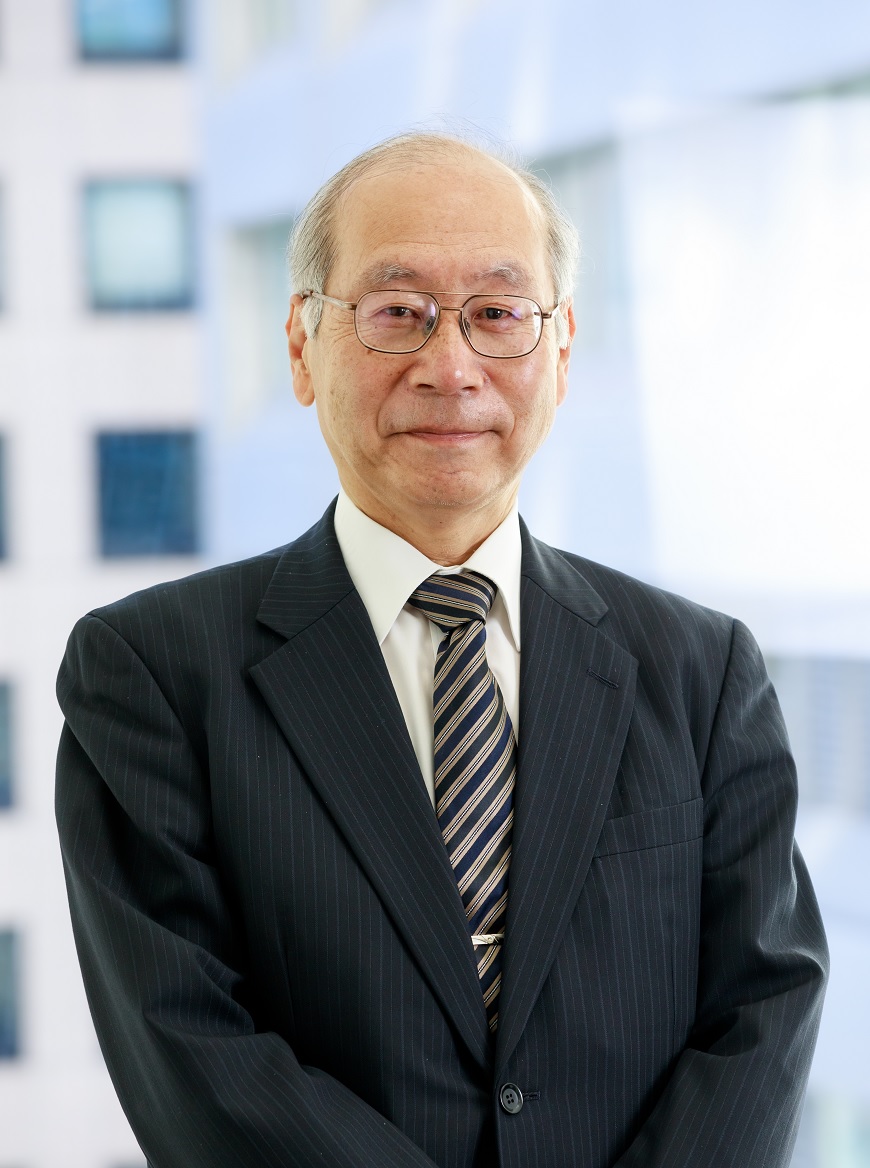Introduction of Plea Bargaining. Â
Moving away from an emphasis on interrogation and statement records-
 During the more than 40 years I have worked as a prosecutor, Japan’s criminal justice system has made great strides. In particular, the roles played by interrogations and testimony records in the overall criminal procedure have changed dramatically, while also being closely related to prosecutorial activities at the time.
 In this article, I would like to touch on how these changes led to the so-called plea bargaining system being adopted in Japan last year.
 This system should officially be called the negotiated agreement system, and the term plea bargaining is not appropriate as it may lead to misunderstandings (for more information, see #11 “Japanese Version of Plea Bargaining” ). However, since it is already widely used in society, we will use the term in this article.
Traditional Criminal Justice
 Why has there not been a plea bargaining system in Japan until now?
 Simply put, there was no need for it under traditional criminal justice.
 Let us take the example of the criminal immunity system. Criminal immunity is a separate system from plea bargaining, but both are systems related to the privilege against self-incrimination (the right to refuse to testify), and in practice the two are closely related, as criminal immunity may be promised as a result of plea bargaining.
 In 1976, when I was appointed as a prosecutor, the Lockheed Scandal was under investigation and former Prime Minister Kakuei Tanaka and others were indicted. As a newly appointed prosecutor at the time, I was tasked with translating the records of the commissioned interrogations of Lockheed associates. These commissioned interrogations were conducted in relation to the bribery schemes that Lockheed had carried out in Japan, and were commissioned by our country’s prosecutors to question Lockheed associates as witnesses at the Tokyo District Court and, through diplomatic channels, at a US court. However, when asked to give testimony, the company’s executives invoked their privilege against self-incrimination and refused to do so, so the Japanese prosecutors were able to obtain their testimony by promising them criminal immunity through a declaration of non-indictment by the Prosecutor General, among other things.
 Under common law, if a person is at risk of being charged with a crime by testifying, he or she is permitted to refuse to testify due to the privilege against self-incrimination. However, granting criminal immunity makes it possible to revoke this privilege and compel a person to testify, and in the United States, it is considered an essential system for clarifying the facts, particularly in cases of complicity.
 However, in Japan, although the right against self-incrimination is recognized just like in the United States and other countries, there was no criminal immunity system for a long time, and it did not immediately cause any inconvenience in clarifying the facts. This is because, after all, in those days in Japan, cases in which a person invoked the right against self-incrimination or the right to remain silent and refused to make a statement, like the Lockheed personnel, were rare, and it was common to obtain a confession through interrogation.
 If we compare Japan’s traditional criminal justice system (hereafter referred to as “traditional criminal justice”) with the systems of other developed countries, we can see some distinctive features. Investigations are carried out thoroughly with questioning of suspects at their core, prosecutions (public prosecutions) are carried out very carefully and only when the prosecutor is certain of the guilt of the accused, and in trials, detailed fact-finding is carried out using statements prepared at the investigation stage as evidence. Because of these features, Japan’s traditional criminal justice system has often been called precise justice.
 And although traditional criminal justice has sometimes been subject to harsh criticism, it cannot be denied that it has been established in Japan for a long time and has played a major role in uncovering the truth of crimes and maintaining good public order.
 For example, the Aum Shinrikyo case, an unprecedented organized terrorist crime, including the 1995 Tokyo subway sarin gas attack, was ultimately handled within the framework of traditional criminal justice. The involvement of the mastermind, Shoko Asahara (real name Chizuo Matsumoto), would likely not have been proven without the confessions and testimony of the perpetrators under him.
 Moreover, in Japan, there has been a tendency to expect criminal justice to go beyond determining whether a person is guilty or not guilty, to also clarify the motives of suspects and defendants. As is reflected in common newspaper phrases such as “Will the darkness in their hearts be revealed?”, it seems that society expected suspects and defendants to reveal the truth without hiding anything during criminal proceedings.
 It was also thought that it was important for suspects/defendants to confess to a crime in order to promote the rehabilitation of criminals.
 The Special Investigation Unit of the Tokyo District Public Prosecutors Office made the most of this traditional criminal justice system. Prosecutors with the ability to obtain confessions were called “wariya,” and in the major cases involving the political and business world handled by the Special Investigation Unit of the Tokyo District Public Prosecutors Office, such as Lockheed, Recruit, Sagawa Kanemaru, and general contractors, prosecutors known as “wariya” played major roles.
 I myself have been involved in this traditional criminal justice system, working in the Special Investigation Unit and other units ( see #1 “Memories of a Certain Interrogation” ).
The impasse of traditional criminal justice
 However, this traditional criminal justice system gradually began to show signs of reaching an impasse in the 21st century, partly due to the influence of judicial system reform ( see #7 “Key Players in Judicial System Reform” ), which led to the introduction of plea bargaining.
 First, there is the issue of obtaining confessions, which has been the basis of traditional criminal justice.
 Due to changes in public consciousness and the strengthening of the defense system and increased defense activities as a result of reforms to the judicial system, the number of cases in which the right to remain silent is exercised during interrogation has increased, making it increasingly difficult to obtain confessions and making it difficult to solve cases by relying on interrogation. On the contrary, the method of detaining suspects, interrogating them, and obtaining confessions has come to be criticized more severely than ever before as “hostage justice.”
 Furthermore, the emphasis on testimony records in trials was also a major pillar of traditional criminal justice, but the situation has changed dramatically with the introduction of the lay judge system as part of the judicial system reform ( see #9 “15 Years of the Lay Judge System” ). In lay judge trials, it is virtually impossible to expect lay judges to read lengthy testimony records. Therefore, emphasis has been placed on testimony in court that lay judges can “see, hear and understand.” This influence has gradually spread to general trials other than lay judge trials.
 Moreover, during this period, a series of so-called false accusation cases came to light.
 A well-known example is the retrial of the Ashikaga case. This case involved the murder of a young girl in 1991. At the time of the investigation, it was determined that the DNA type of the bodily fluids left at the scene was identical to that of the defendant. Furthermore, the records prepared based on the defendant’s confession during the investigation were also used as the basis for the guilty verdict, and the defendant was sentenced to life imprisonment.
 However, with the subsequent advances in technology, the accuracy of DNA typing has improved dramatically, and it has become clear that the DNA was in fact a different type, which means that the contents of the defendant’s confession statement are false.
 As a result of these incidents, the credibility of statements prepared during the investigation stage has declined, and courts no longer accept them as evidence as widely as they did in the past.
 And the decisive event was the acquittal of Atsuko Muraki of the Ministry of Health, Labor and Welfare in the case investigated and indicted by the Special Investigation Division of the Osaka District Public Prosecutors Office in 2010. There were various problems with this case, but the credibility of all the numerous statements by Ministry of Health, Labor and Welfare officials regarding Muraki’s involvement was completely denied on the grounds that they were the result of guidance by the prosecutors, which exposed the problems that have long been inherent in traditional criminal justice.
 This case sparked unprecedented criticism of the prosecution, and even some people called for the dissolution of the Special Investigation Unit. During this time, I was serving as Director-General of the Criminal Affairs Bureau and Administrative Vice-Minister of the Ministry of Justice, and I found myself at the forefront of criticism of the prosecution. It was in this environment that prosecutorial and criminal justice reforms were carried out.
2016 Amendment to the Code of Criminal Procedure and Introduction of Plea Bargaining
 The reform culminated in the amendment of the Code of Criminal Procedure in 2016.
 The purpose of this amendment, in a nutshell, is to move away from the traditional criminal justice system’s excessive reliance on interrogations and statements.
 First, in light of cases such as Ms. Muraki’s acquittal, it was made mandatory to audio and videotape interrogations of suspects in custody in cases that are to be tried by lay judges or cases investigated independently by the prosecutors, in order to prevent coercive and leading interrogations. 
 On the other hand, efforts were made to diversify the means of collecting evidence so that criminal facts could be clarified without relying too heavily on interrogations. Specifically, this included the introduction of plea bargaining and criminal immunity, the expansion of wiretapping and the relaxation of requirements, etc. These investigative methods, including plea bargaining, had been used from an early stage in other countries, on the premise that those involved in the case would not confess and that the case could not be solved by interrogations alone.
 Thus, with the traditional methods of relying on interrogations and statements reaching a dead end, Japan has finally made a historic structural shift to a system that is on par with other developed countries, in which evidence is obtained through more extensive use of methods other than interrogations, facts are clarified, and prosecutions are carried out.
 Among the systems introduced by the 2016 amendment to the Code of Criminal Procedure, plea bargaining is of particular practical significance.
 Plea bargaining, which was introduced in Japan, is a system in which parties to a case who may be held criminally responsible negotiate with the prosecution, and in return for the parties to the case cooperating with the prosecution’s investigation, the prosecution promises to exempt or reduce criminal punishment for that person.
 However, this plea bargaining system has not been accepted without resistance.
 In the first place, Japanese criminal justice is based on the principle of substantive truth, which aims to uncover the truth (see Article 1 of the Code of Criminal Procedure). From this basic perspective on criminal proceedings, there was a strong sense of caution and discomfort regarding the possibility that courts would be bound by the guilty pleas that result from Anglo-American style plea bargaining, and that criminal facts could sometimes be found that are far removed from the substantive truth.
However, as I will discuss in another article ( #11 “Japanese Version of Plea Bargaining” ),  the newly introduced Japanese version of plea bargaining differs from the Anglo-American system which is linked to guilty pleas; it is a system of cooperation in the investigation of crimes committed by others, does not bind the court or omit the examination of evidence, and is not inconsistent with the principle of substantial truth.
 Furthermore, during discussions on the introduction of the system, there was harsh criticism from senior prosecutors and other people who were involved in traditional criminal justice. In other words, they said things like, “What are you making a deal with a criminal? The reason we can’t get true confessions during interrogations is because the ability of prosecutors today has declined. Plea bargaining goes against healthy public sentiment.”
 However, considering the changes in the environment as mentioned above, this is no longer a situation that can be overcome with such a mentality. Even if we try to maintain the previous criminal justice system that relies on interrogations and statements in this new era, we will be unable to uncover the truth and will be unable to deal with crimes effectively. However, if we try to uncover the facts by any means using traditional methods, it could lead to unreasonable interrogations and the creation of false accusations.
The necessity of plea bargaining
 From the perspective of social justice, the most important thing is to uncover the full extent of serious crimes and, in the case of organized crime, to punish the main perpetrators. Otherwise, society’s safety and security will not be maintained and ordinary citizens’ trust in the law and the judiciary will be undermined.
 However, in organized crime, including corporate crime, the mastermind often instructs subordinates to commit the crime directly, hiding behind the scenes. As a result, punishment is often limited to the subordinates who committed the crime, while the mastermind escapes punishment. This goes against the sentiment of justice and fairness, and has no deterrent effect on crime.
 In order to hold a mastermind responsible, it is necessary to obtain evidence linking the mastermind to the crime, such as the perpetrator being a subordinate who received instructions from the mastermind.
 However, it is not easy to obtain testimony from subordinates regarding the instructions of the mastermind, as subordinates fear retaliation or influence from the mastermind, who is higher in rank.
 At the same time, we cannot ignore the fact that if subordinates reveal the full extent of the crime, including the instructions given by the mastermind, they too will be punished. In reality, it is difficult to expect subordinates to cooperate with the investigation and tell the truth when there is a risk that they will be held criminally responsible if they reveal the facts honestly.
 Considering this true nature of human nature, plea bargaining was introduced as a necessary incentive to solve crimes. In other words, plea bargaining aims to reveal the truth of a crime and punish the most responsible principals and masterminds/villains, thereby making it easier to obtain the cooperation of accomplices who have lower ranks and lesser roles by exempting them from or reducing their punishment. In this way, plea bargaining is completely necessary and rational from the perspective of the public interest. This is why such a system has been adopted and utilized in developed countries other than Japan, even though the content may differ.
 Of course, there are many cases where objective evidence is not left behind, so interrogations remain an important investigative tool. However, the introduction of effective investigative methods other than interrogations would reduce the relative dependence on interrogations and statements, and would enable the provision of more reliable evidence to the courts, which would allow for fair judgment.
 Some have criticized this amendment to the law as an attempt by investigators to make ends meet, but this is not the case.
 Certainly, if the only goal is to prevent wrongful convictions, one might think that it would be sufficient to make interrogations more transparent to prevent unfair interrogations and to make more careful decisions about whether to prosecute.
 However, in the current situation where fact-finding and prosecution are becoming more difficult, simply strengthening control over investigations would result in the inability to uncover and prosecute suspects of serious crimes and seek judicial judgment, which could result in major crimes going unchecked. The situation remains unchanged, with politically-related cases and large-scale economic crimes being brought to the prosecutor’s office, and the criminal justice system being called upon to clarify these cases. Furthermore, when interrogations are audio-recorded, subordinates become even more hesitant to honestly reveal instructions from their superiors, considering that the audio-recorded recordings will be played in the future and the exchanges during the interrogation will be seen by their superiors. This makes it extremely difficult in practice to conduct “upward investigations” that pressure higher-ups in an organization through interrogations.
 Therefore, in order to effectively detect and prosecute cases that should be tried under the criminal justice system and meet the public’s expectations and trust in the criminal justice system, it must be said that it is necessary to introduce means of collecting evidence that do not rely solely on interrogations.
 Plea bargaining was introduced with this purpose in mind.
postscript
 In a ruling of February 22, 1995, the Supreme Court Grand Bench denied the admissibility of the transcripts of the commissioned interrogations of Lockheed personnel on the grounds that criminal immunity is not recognized under Japanese law, but the guilty verdicts of the defendants were upheld based on other evidence. The Supreme Court ruling stated that “Our Constitution cannot be interpreted as denying the introduction of a system (such as criminal immunity),” and went on to say that “if a (criminal immunity system) is adopted, its scope, procedural requirements, effects, etc. should be clearly stipulated.” The criminal immunity and plea bargaining introduced by the 2016 amendment to the Code of Criminal Procedure are legal systems based on the intent of such precedents.
Author




